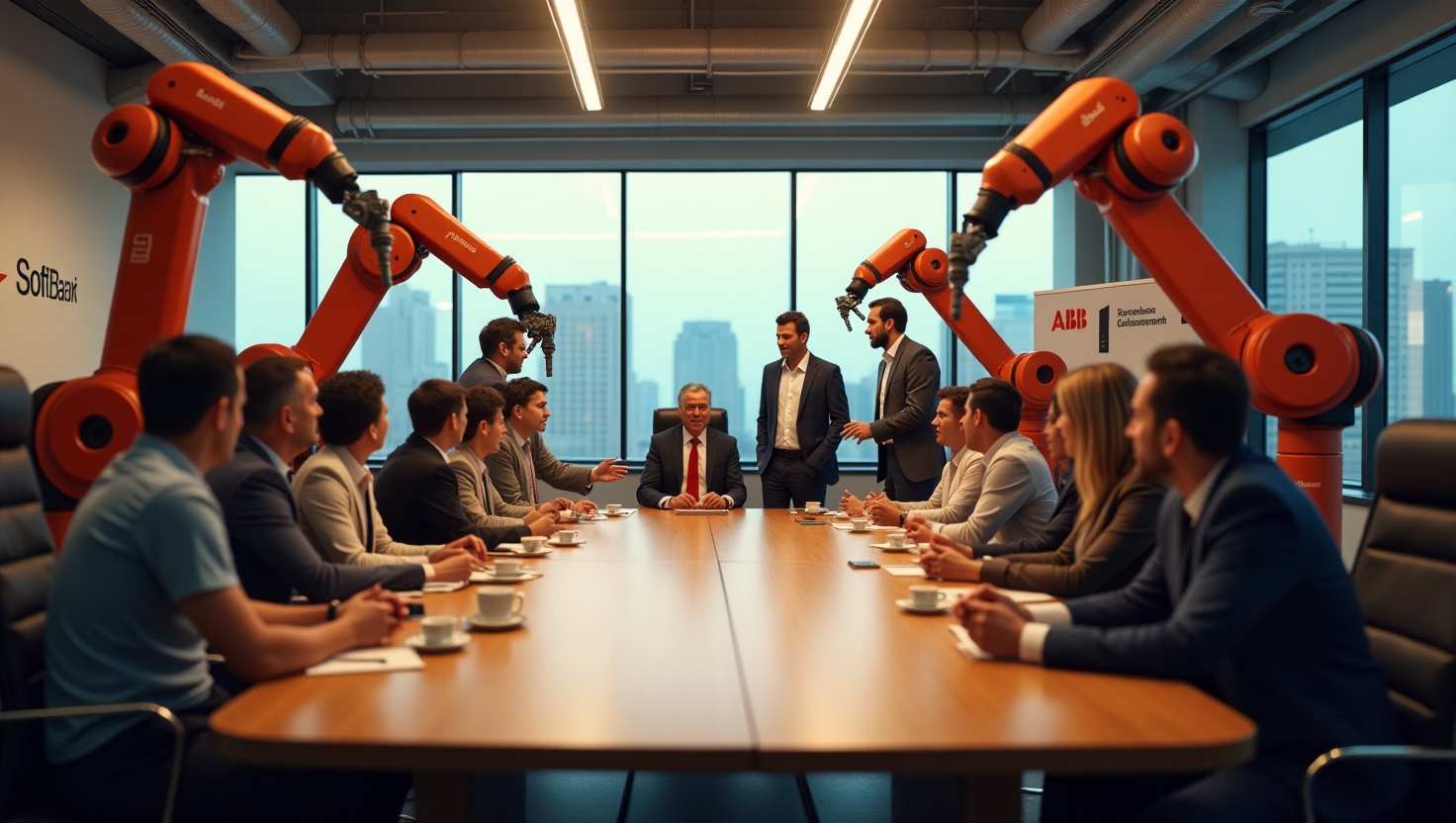Robotics Acquisition Wave: Industry Consolidation & AI Advancements Reshape the Future
Introduction: The ABB-SoftBank Deal as a Catalyst
The robotics acquisition landscape ignited with SoftBank’s $5.375 billion purchase of ABB Robotics. This deal marks a pivotal robotics acquisition, signaling deeper industry consolidation and AI robotics integration. Is this deal a tipping point for global robotics consolidation?
Background: Why Big Bets Are Reshaping Robotics
SoftBank acquired ABB’s Robotics & Discrete Automation division for $5.375 billion, encompassing $2.3 billion in 2024 revenues and 7,000 employees. Masayoshi Son, SoftBank’s chairman, envisions fusing \”physical AI with super intelligence\” to drive innovation The Robot Report. ABB gains a $2.4 billion pre-tax profit but incurs $200 million in separation costs, reflecting a major business shift away from robotics.
SoftBank bolsters its AI robotics portfolio, building on past acquisitions like Boston Dynamics and Nuro.ai. This move aligns with broader business shifts, as ABB refocuses on power and transportation sectors. The deal, set to close in 2026, highlights strategic pivots amid rising AI demands.
Trend: Industry Consolidation Accelerates
Industry consolidation surges in robotics, driven by supply chain challenges and AI integration expenses. Recent robotics acquisitions include Hyundai’s joint venture with Mercedes and AutoStore’s expansions, fueling a +23% year-over-year growth in global M&A activity. Companies shed legacy assets to fund cutting-edge innovations, amplifying workforce efficiencies.
The ABB-SoftBank robotics acquisition exemplifies this pattern, as firms streamline for AI robotics dominance. Drivers include economic pressures and the need for scalable tech ecosystems.
- Key Drivers of Industry Consolidation:
- Supply chain disruptions pushing mergers for stability.
- High costs of AI robotics development favoring larger entities.
- Workforce consolidation to optimize talent pools.
What did SoftBank pay for ABB Robotics?
$5.375 billion, with ABB expecting $5.3 billion in net cash proceeds The Robot Report.
Insight: AI Robotics as the Powerhouse of Value
SoftBank’s \”physical AI\” strategy merges robotics hardware with artificial superintelligence, unlocking new value. ABB’s legacy in industrial automation contrasts with SoftBank’s ambitious AI robotics vision, creating synergies for advanced applications. This business shift realigns talent, with ABB’s Sami Atiya departing by 2026 to make way for innovation-focused leadership.
Business shifts like this highlight ABB’s pivot to core sectors, while SoftBank accelerates AI robotics through strategic buys. The fusion promises smarter, more adaptive systems.
| Robotics Giant | Key Strength | Post-Consolidation Focus |
|—————|————–|————————–|
| SoftBank (with ABB) | AI integration | Physical AI ecosystems |
| Hyundai (with Boston Dynamics) | Humanoid tech | Automotive automation |
| AutoStore | Logistics solutions | Warehouse efficiency |
Forecast: The Next Phase of Robotics Transformation
AI robotics acquisitions will spike, targeting humanoid robots and logistics automation by 2027. Expect consolidation among startups like ASTI Mobile Robotics and Zume Pizza spin-offs, standardizing AI-robotics ecosystems. Regulatory changes, including GEV compliance and cybersecurity rules, will shape the landscape.
Impacts include faster innovation and market dominance for integrated players. Business shifts toward AI-driven models will redefine manufacturing and services.
What is SoftBank’s vision for ABB Robotics?
To fuse artificial superintelligence with robotics for \”physical AI\” advancements.
Call to Action: Prepare for the Robotics Revolution
Is your business ready for the robotics consolidation wave? Download our free playbook on AI Robotics Integration Strategies or join our upcoming webinar on industry trends. Will humanoids dominate manufacturing by 2030?
